A reluctant spokesman: Tom Dumoulin adapts to his new status
Dutchman diplomatic on Chris Froome case and Giro's Israel start
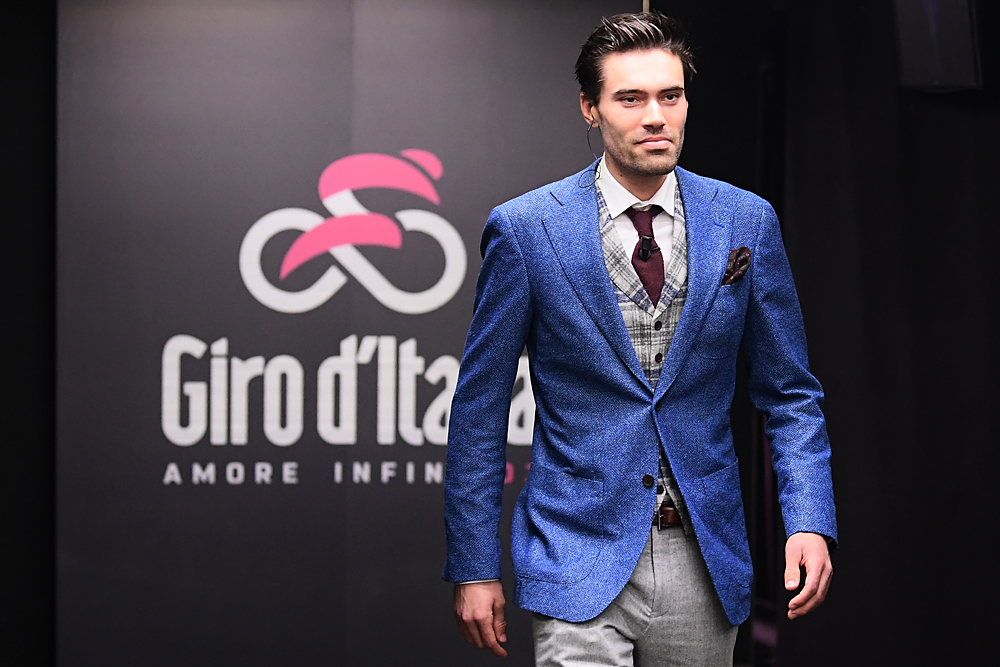
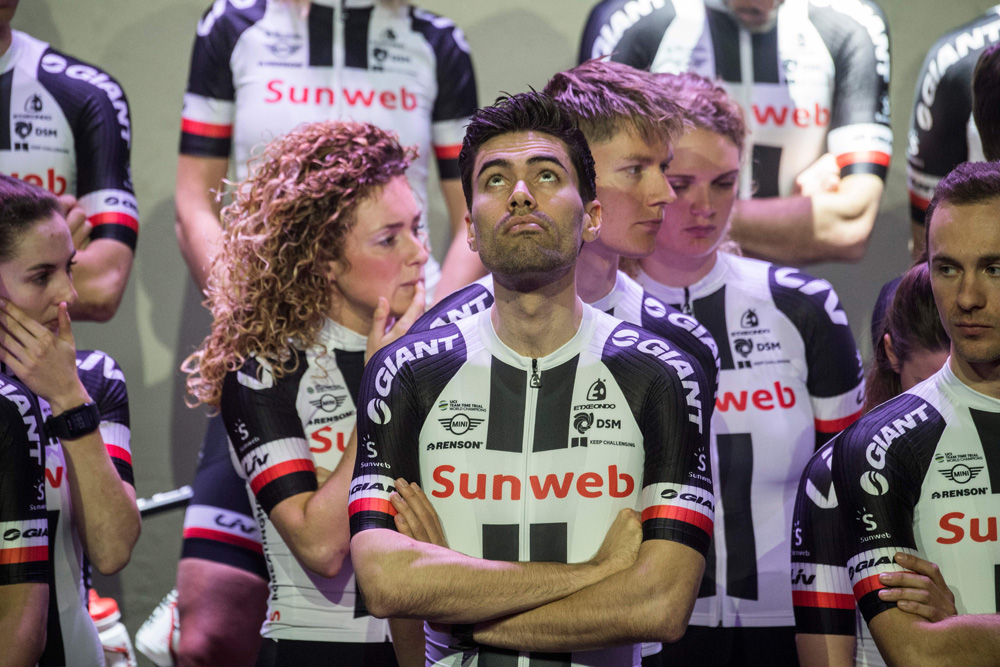
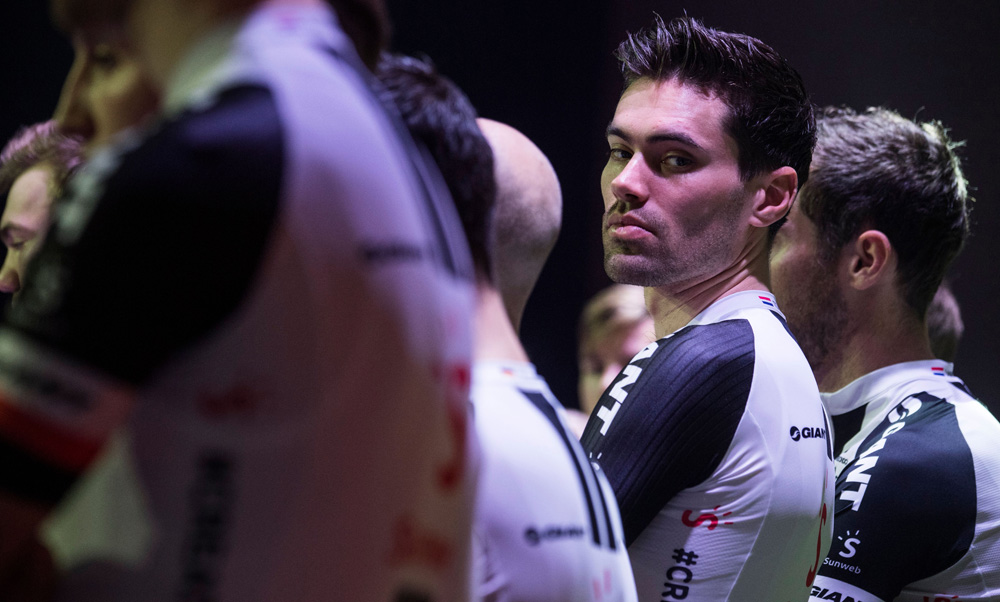
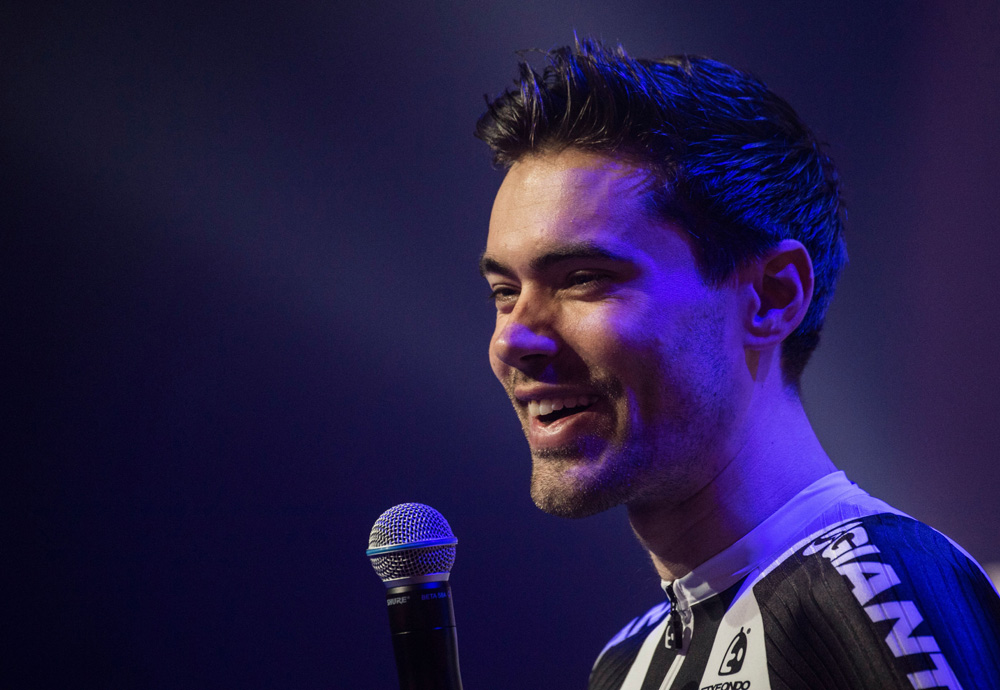
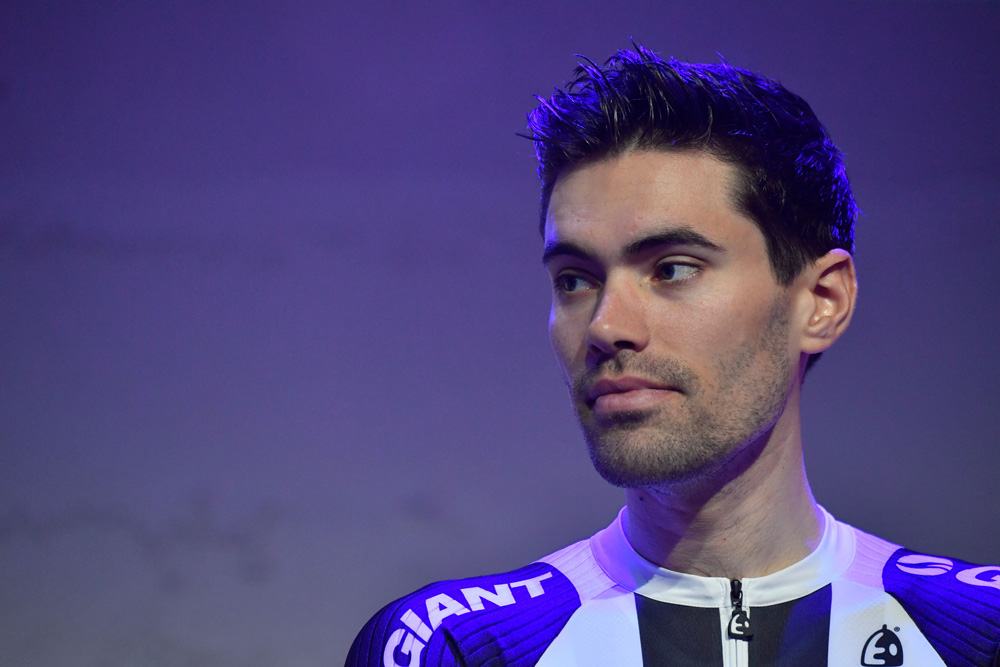
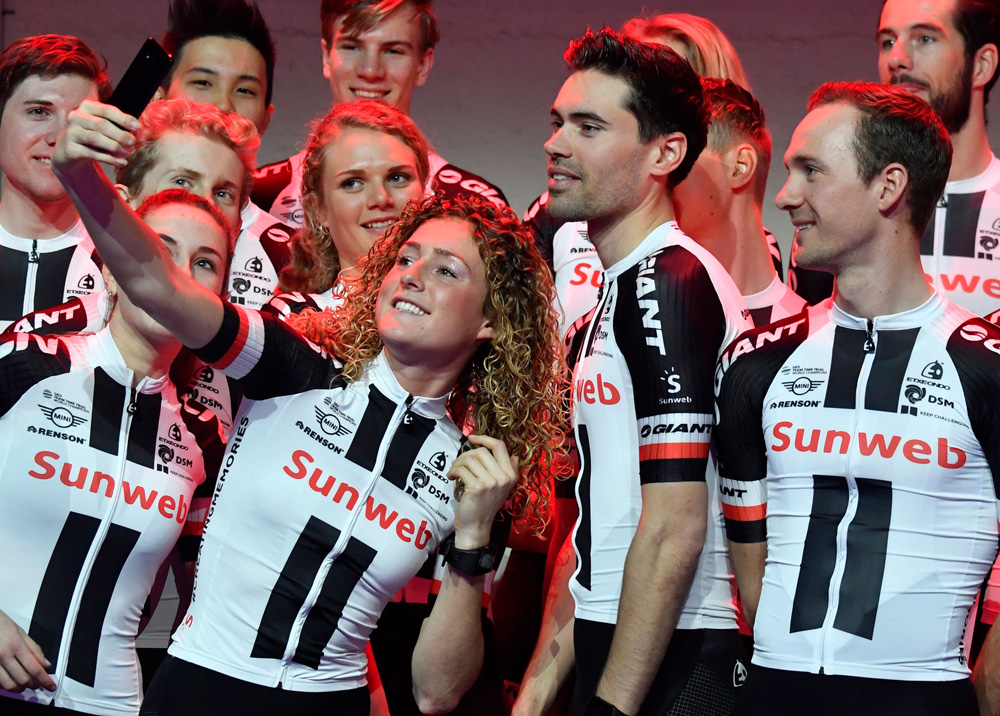
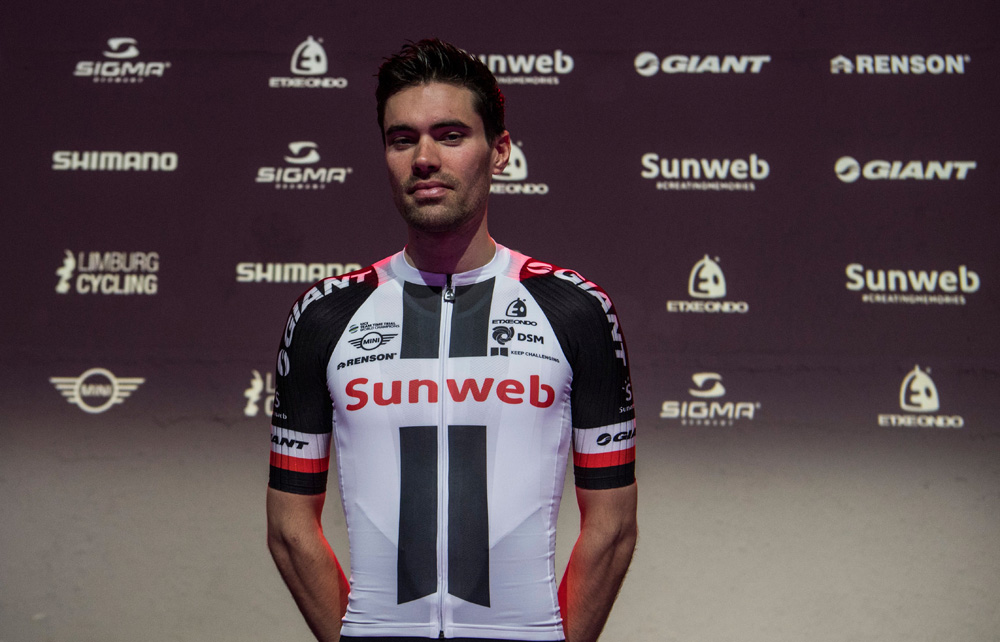
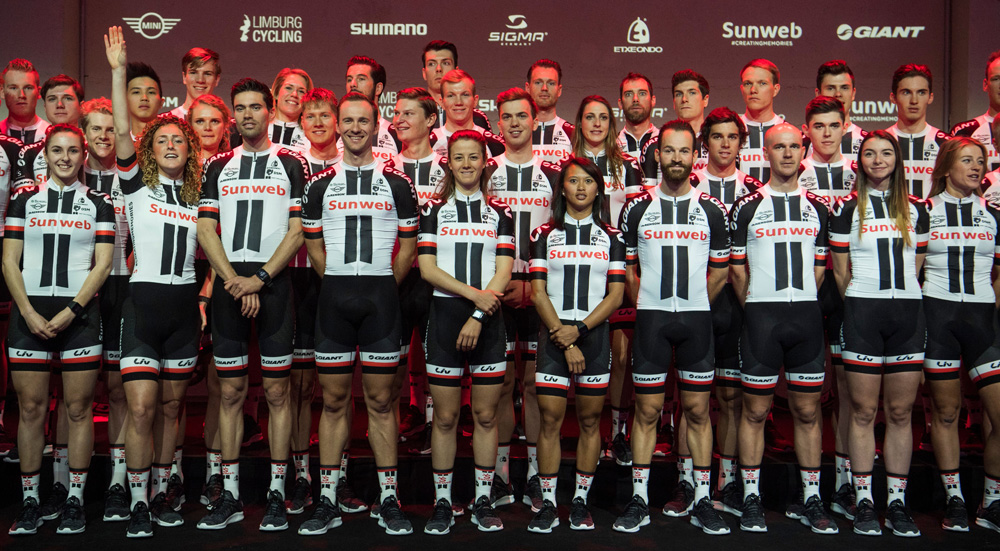
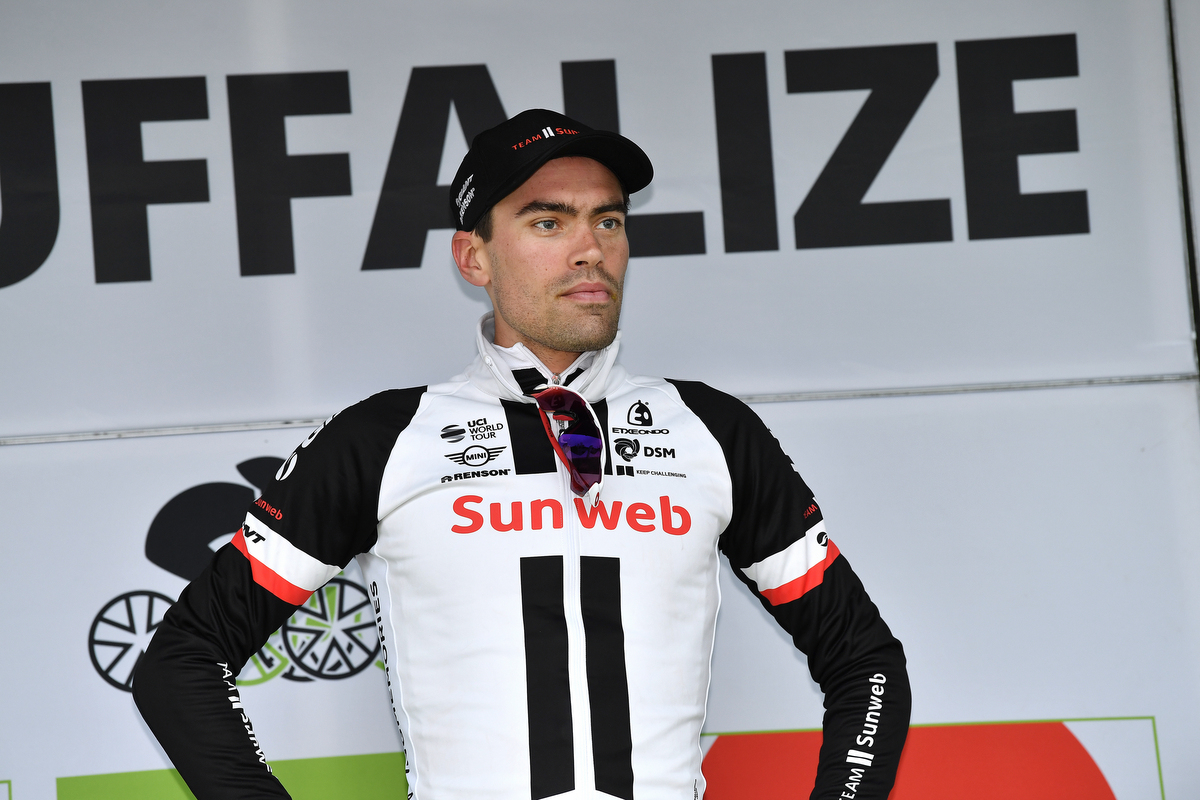
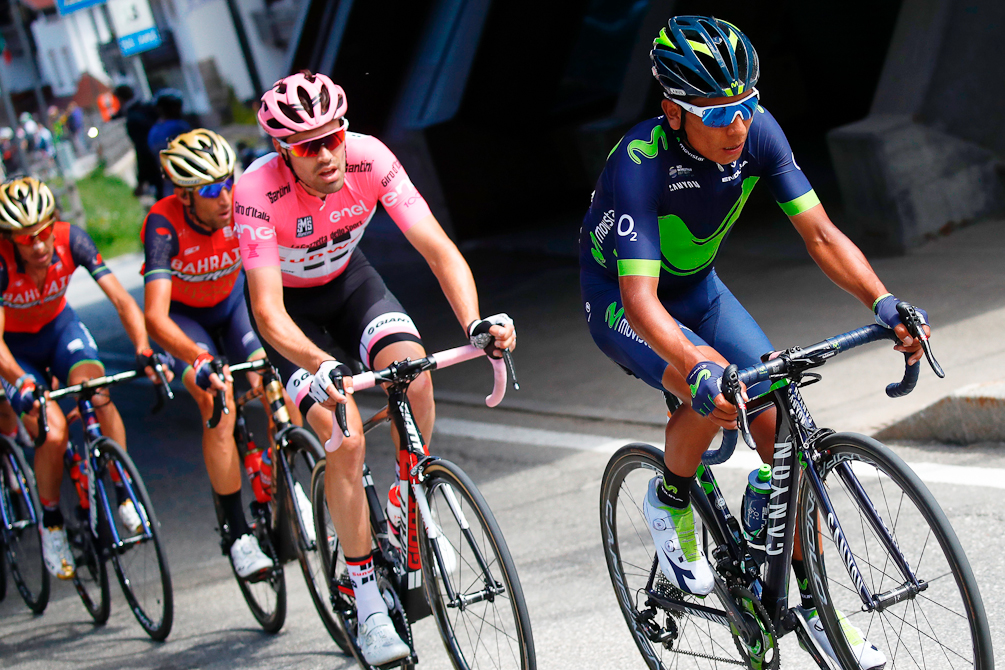
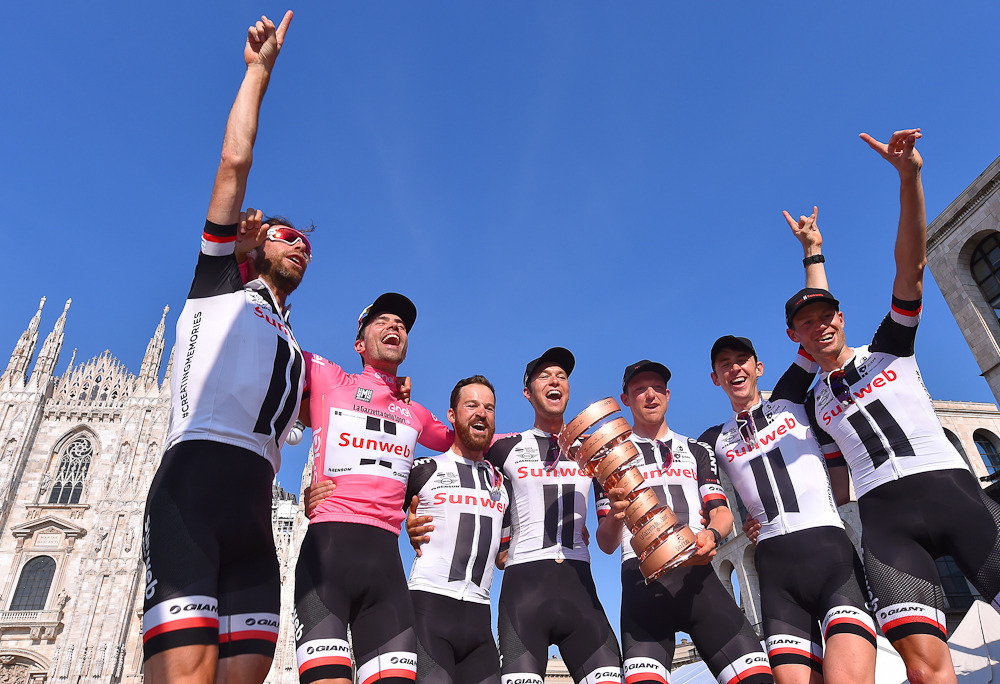
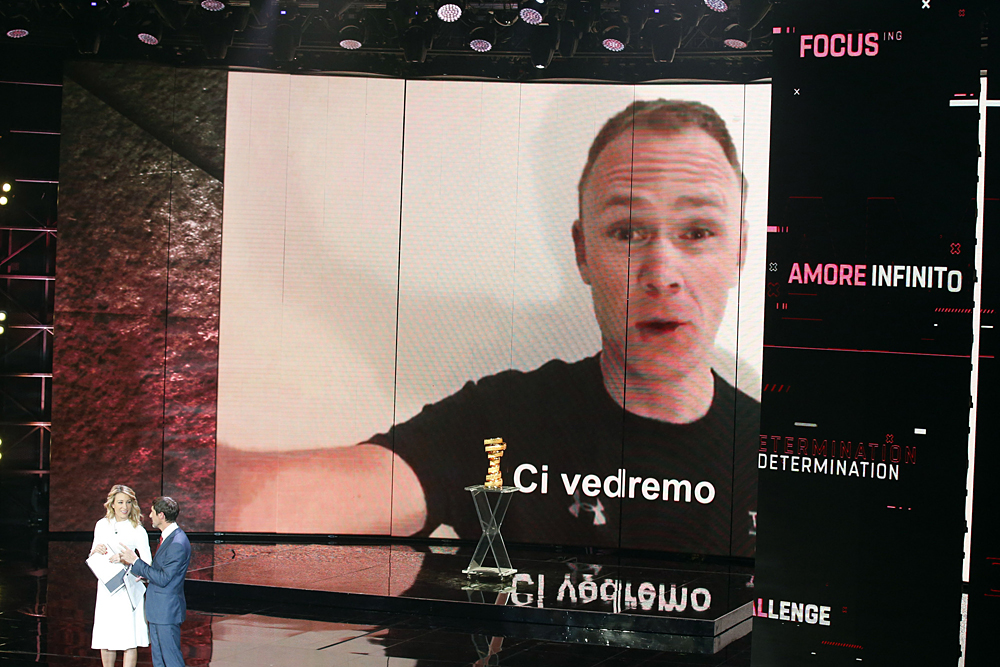
With great success comes even greater scrutiny. Fresh from a 2017 season that yielded Giro d'Italia victory and a rainbow jersey, these days Tom Dumoulin can scarcely make it as far as his local supermarket without it becoming an event of sorts. The Netherlands had been waiting a long, long time – 37 years, to be precise – for a Grand Tour winner, and so it was perhaps only to be expected that Dumoulin would attain level of celebrity more usually accorded to the nation's footballers.
"I'm not used to being recognised, you're not always private anymore," Dumoulin said in Berlin on Thursday, where he was the centre of attention in the rather more formal setting of Sunweb's 2018 team presentation. "You have people asking you things even when you don't want it. You cannot choose when to take an easy moment in a restaurant or something."
One suspects that Dumoulin would gladly bear that hardship if it meant being relieved from one of the other, tacit duties of the cycling champion. Since winning the Giro, he has found himself being called upon with increasing frequency to be a de facto spokesman for the peloton, but even before that triumph in May, he was already well aware of the weight his words carry in an age of social media and instant takes.
When Dumoulin voiced his scepticism about Bradley Wiggins' therapeutic use exemptions (TUE) in 2016, for instance, his opinion travelled further, more quickly and made more headlines than he might ever have anticipated. With that clearly in mind, Dumoulin seems reticent in the extreme to pass judgement on another Sky rider, Chris Froome, whose positive test for salbutamol on the 2017 Vuelta a España was revealed in December.
"My first reaction was 'that's absolutely terrible' and it is for cycling. It's absolutely terrible," Dumoulin said carefully to a scrum of reporters in the Umspannwerk Alexanderplatz, before outlining why he was reluctant to enter into an analysis of the specifics of the case.
"I said some things in the past about Wiggins and things about races – not necessarily about doping – but always when I stood out for my opinion, it backfired, I got stress from it. Journalists weren't happy with one answer, and the next time something came out, you all quote me again for my reaction. It only caused me stress, I never had a good feeling about it."
Dumoulin refuted the idea that expressing forthright opinions on doping might ruffle feathers among his peers in the peloton, pleading that he simply did not know enough about the particulars of Froome's use of salbutamol to make a categorical statement.
Get The Leadout Newsletter
The latest race content, interviews, features, reviews and expert buying guides, direct to your inbox!
"What can I say now about the Froome case? I cannot say anything because I don't know the details. I only know that he's positive, I know that he's positive with twice the dose of salbutamol in his body. He is now defending himself with a lawyer and everything. I'm not helping myself or anyone to say anything about it."
Froome a possible rival at Giro d'Italia despite positive test
As a positive test for a specified substance does not trigger an automatic provisional suspension, Froome is, according to the letter of the UCI's anti-doping rules, free to compete until such time as the case is resolved. Given that Froome has yet to undertake the required pharmacokinetic study and has engaged the services of sports lawyer Mike Morgan, it appears that months will pass before a verdict is reached.
It thus seems increasingly likely that Froome will be among Dumoulin's rivals at the Giro d'Italia, which gets underway in Israel on May 4, albeit with a question mark over whether his eventual result will survive in the record books. In short, cycling risks a farcical repeat of the 2011 Giro, where Alberto Contador raced – and won – only to be stripped of victory the following year when his suspension for his 2010 positive test for Clenbuterol was confirmed.
"This is a situation that can happen and that would be a very bad situation," Dumoulin said. "I don't know. It's never nice. Let's say he [Froome] wins it and I get second and he gets suspended afterwards – the win doesn't feel as nice anymore. I hope they will find a verdict before the Giro."
Team Sky could, of course, take action to avoid that very scenario, by withholding Froome from racing until the case is resolved, although, unlike Sunweb, Dave Brailsford's squad is not part of the Movement for Credible Cycling and has never shown any inclination to sign up to any of its additional, voluntary measures, which include additional testing for cortisol and a commitment not to avail of TUEs in competition.
"I would be suspended if I was in his case," Dumoulin said, though he was again careful not to condemn Froome's intention to resume racing as normal at the beginning of the 2018 season.
"I am always surprised that after an A-sample or even a B-sample that you immediately get suspended. That's good for the credibility, but that's not how the law system works. Our team is an MPCC team and chooses to do that, and that's also what I signed for, but that's not how a normal law system works.
"If you commit a crime and it's not 100% sure in a verdict that you are guilty, you are not in jail. For that, I can understand [why Froome is not suspended – ed.] and maybe it's even better because they can take the time and really look into it."
Regardless of the outcome and beyond the immediate damage to Froome's reputation and legacy, the credibility of the sport as a whole has once again been shaken by the positive test. Asked if he was confident that he has been competing against clean athletes in the Grand Tours, Dumoulin was again cautious.
"I did…" he said, and then caught himself. "I'm not saying anything. I really don't want to be the spokesman about this. I really dontt want to be.
"This is not something I really love about my job, to answer questions about somebody else's doping case. I mean, that's not what I love about it. Of course after the Giro, after I became a 'famous cyclist,' and I'm getting more of these questions about things."
Giro d'Italia's controversial start in Israel
Another such question regards the wisdom of RCS Sport's choice to award the start of the 2018 Giro to Israel. The polemics that greeted the Giro organiser's indecision over whether to refer to Jerusalem or West Jerusalem on its official maps were an indication of the politicised nature of the occasion. As the defending champion, Dumoulin is well aware that he is expected to have an opinion on the matter, though he maintains that he is not sufficiently well informed to provide one.
"I'm going to have faith in the authorities," Dumoulin said. "Everybody is asking me, but I'm just a simple cyclist. I'm just enjoying my sport and people are asking me now, 'What do you think of Israel?' What? How do I know? I only know what I read and hear in the news.
"I think I 'know' the situation but I don't, of course I don't. Only real historians or the people from there really know what's going on, and where their anger comes from. I cannot know that. And suddenly I need to give an opinion about that. That is really weird, and I'm not going to do that. I'm leaving it up to the authorities. If everybody says it's safe, I'll believe them and go and enjoy myself."
Dumoulin's choice to return to the Giro rather than build his 2018 season around a tilt at the Tour de France has raised eyebrows, not least because Froome might reach July either fatigued from the Giro or, in the event of a doping ban, side-lined from racing altogether. The Dutchman insisted, however, that his calendar was sketched out in early November, and was not contingent on the plans of Froome or anyone else.
"We already made a decision at the beginning of November without knowing what Froome or any contender would do. I don't care what other contenders do," Dumoulin said. "If I go to a race, I just want to beat the guys that are there. Sometimes it's really good opponents, sometimes not as good. But that's not in our control, so why would we care about it?
"It's definitely an option to do the Tour also, but let's say I come out of the Giro with a really bad feeling and we had told everyone we were going to do the double or whatever… I just want to focus all of my energy on the Giro now, and then afterwards we'll see. Maybe we'll do the Tour, maybe we'll do the Vuelta, or maybe we'll go to the Tour just to go for stages."
Froome's participation in the Giro was reportedly influenced by a hefty financial incentive offered by the local organising committee in Israel but Dumoulin said that he would not be receiving an appearance fee to line out at the corsa rosa once again.
"I can confirm that I don't know anything about that. Maybe the team, you should ask them," Dumoulin said. "But personally I don't know anything about getting money. I would love to get some more money in my bank account but it's not happening, at least not that I know about."
A hesitant spokesman
Dumoulin was, by some distance, the rider most sought after by the television crews and reporters who journeyed to Berlin for Sunweb's team presentation. The increased media demands in the months since his Giro victory mean that the loquacious Dumoulin's time has become ever more precious, but old habits die hard. The final group of reporters waiting to interview the Dutchman were warned beforehand that they would have just five minutes in his company, but instead he sat and spoke readily for more than quarter of an hour.
Even when the discussion turned to Israel and Froome, Dumoulin showed no inclination to cut the rendezvous short, though he gently insisted on one point – he has no desire to be a spokesman for cycling. That may be the case, but like it or not, Dumoulin's status means that it will be difficult to avoid the role in the months and years ahead.

Barry Ryan was Head of Features at Cyclingnews. He has covered professional cycling since 2010, reporting from the Tour de France, Giro d’Italia and events from Argentina to Japan. His writing has appeared in The Independent, Procycling and Cycling Plus. He is the author of The Ascent: Sean Kelly, Stephen Roche and the Rise of Irish Cycling’s Golden Generation, published by Gill Books.